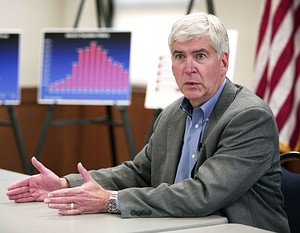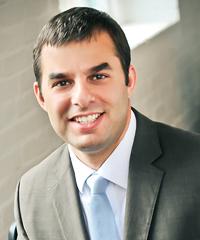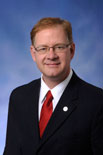A 46-page “progress report” released by five Republican House committees of jurisdiction indicates that security cuts at the U.S. Consulate in Benghazi prior to the terrorist attack that killed Ambassador Chris Stevens and three other Americans were approved by then-Secretary of State Clinton. This contradicts her January 23, 2013 testimony before the House Foreign Affairs Committee declaring exactly the opposite.
On that occasion she said under oath: “I have made it very clear that the security cables did not come to my attention or above the assistant secretary level where the ARB (Accountability Review Board) placed that responsibility.” Yet a cable bearing her signature dated March 28, 2012, acknowledges a formal request from then-U.S. Ambassador to Libya Gene Cretz for additional security assets, but orders the withdrawal of security elements to proceed as planned.
Hillary clearly wanted to put all accountability for the ugly Benghazi matter out of public sight and mind. When Senator Ron Johnson (R-Wis.) asked her why she, her State Department and the White House, who immediately knew differently, continued to blame the deadly assault on our consulate upon an obscure anti-Muslim video for weeks afterwards, she angrily pounded the table and retorted: “With all due respect, the fact is we had four dead Americans. Was it because of a protest or was it because of guys out for a walk one night who decided they’d go kill some Americans? What difference at this point, does it make?”
The Cover-Up Cover Story:
The House interim report states that “reductions of security levels prior to the attacks in Benghazi were approved at the highest levels of the State Department, up to and including Secretary Clinton”. It also concludes that dishonest changes to the public talking points discussing the entire Benghazi debacle were concocted at the behest of the White House to make the Obama administration look good. After original versions of the attack were drafted and the editing process began, “draft talking points were sent to officials, throughout the Executive Branch, (and) senior State Department officials requested the talking points be changed to avoid criticism for ignoring the threat environment in Benghazi.”
The report charges that: “The administration’s talking points were developed in an interagency process that focused more on protecting the reputation and credibility of the State Department than on explaining to the American people the facts surrounding the fatal attacks.” It quotes one email saying that there was concern that members of Congress would attack the State Department for “not paying attention to Agency warnings”. Further, it states that: “Those edits struck any and all suggestions that the State Department had been previously warned of threats in the region, that there had been previous attacks in Benghazi by al-Qaeda-linked groups in Benghazi and eastern Libya, and that extremists linked to al-Qaeda may have participated in the attack on the Benghazi Mission.”
The talking points representing the attack on the Benghazi compound as a “spontaneous” demonstration provoked by an anti-Muslim video were known to be false at the time soon after the attacks. This was before the White House dispatched U.N. Ambassador Susan Rice to present that story on five Sunday morning talk shows. Also, contrary to administration rhetoric, protection of classified information had no influence in the editing process that produced the talking points narrative. No concern about this issue was mentioned in email traffic among senior administration officials who were involved.
According to the House report, the White House and branches of the Obama administration knew or learned quite a lot about the Benghazi tragedy at the time disingenuous accounts were repeatedly released to the public. CIA Director David Petraeus met with members of the House Permanent Select Committee on Intelligence on September 14, telling them that CIA briefing notes included:
- Information about five previous attacks on foreign interests in Benghazi since April 2012.
- Potential links to al-Qaida connected to Libyan militia, Ansar al-Sharia.
- Previous CIA assessment groups linked to al-Qaida in eastern Libya.
- Information suggesting that Islamic extremists participated in the attack.
The Frustrating Witness Hide and Seek Dilemma:
Many in Congress believe that Benghazi survivors who were evacuated after the attacks have been held incommunicado to keep politically-damaging information about an Obama administration failure to offer a military response from being released. Senator Lindsey Graham (R-SC) told Fox News that “The bottom line is they feel they can’t come forth…They’ve been told to be quiet.” Graham said: “We cannot let this administration or any other administration get away with hiding from American people and Congress…people who were there in real time to tell the story.”
Fox News also reported that a congressional source told them investigators believe that including Ambassador Stevens and the three other casualties, 37 people were in Benghazi on behalf of the State Department and CIA on September 11, meaning that 33 were evacuated. One of them, a State Department security agent, suffered a severe head injury during the assault. It is believed that Secretary of State John Kerry visited him at the Walter Reed Medical Center last January.
On April 17, Representative Dana Rohrabacher (R-CA) told Secretary Kerry at a House Foreign Affairs Committee hearing: “We have made request after request about, for example, just to get the list of the people who were evacuated from Benghazi, and we haven’t even gotten that, much less some important questions.” Rohrabacher emphasized: “We need to talk to the people who are on the scene. Can you give us a commitment now that this administration, you will be coming up with the request, the honest request of this committee as to who was evacuated and how to talk to them so we can get a straight answer and an understanding of what happened in Benghazi?”
Kerry responded that he didn’t think anybody lied to anybody, and “let’s find out exactly, together, what happened because we need… we got a lot more important things to move on to and get done.”
Kerry’s terse reply to a genuinely appropriate request must have come as quite a shock to parents of brave victims of the brutal siege. Seven months after September 11, Charles Woods and several members of Congress held a press conference urging the Obama administration to fully disclose circumstances that led to the murders of his son Ty and others. Mr. Woods said, “We don’t just want another paper report. We want people who were on the ground” to testify and explain “why they failed to provide support and protection.” He pleaded “This is extraordinary and we need to know…who was it that gave the order to stand down.”
One week earlier, Patricia Smith, the mother of Benghazi casualty Sean Smith, wrote a letter to Congress regarding her son’s death. It said: “When I was in Washington, D.C., at the reception of the caskets, I asked for and received promises from President Obama, Hillary Clinton, Leon Panetta, V.P. Biden and several other dignitaries in attendance. They all looked me directly in the eyes and promised they would find out [what happened in Benghazi].” She then recounted: “I got only one call from a clerk about a month later quoting from the time line, which I already had.”
As Representative Rohrabacher wrote in an April 9 Investor’s Business Dailyarticle: “The identities of those Americans who were there, including those who were wounded, has been kept from congressional investigators who have a constitutional responsibility to oversee U.S. foreign policy in situations exactly like this.” He further said: “It is widely believed, for example, that some of those involved in the Benghazi attack were also involved in the attack on the gas plant in Algeria in January where 37 hostages were killed, including three Americans…The false story of the Benghazi attack put out by the administration downplayed the magnitude of the radical Islamist threat that still faces our country.”
Were Obama and Clinton Missing in Action?
Members of Congress are also seeking clarification regarding President Obama’s actions at the time of the consulate attack. Special questions arose when departing Defense Secretary Leon Panetta testified at a February Senate Armed Services Committee hearing that Obama talked to him only once by telephone during the time the consulate was under assault, and never called him back for updates. That single conversation took place about half an hour after the president was notified about the attack.
Senator Graham asked Panetta incredulously, “So you think it’s a typical response of the president of the United States to make one phone call, do what you can and never call you back again and ask you, how’s it going, by the way, showing your frustration we don’t have any assets in there to help these people for over seven hours?”
Both Panetta and Joint Chiefs of Staff Chairman General Martin Dempsey, who also testified at the hearing, stated that they were never in touch with Secretary of State Clinton throughout the evening of the attack on her ambassador and other personnel. “[W]e never received a request for support from the State Department,” Dempsey said, never explaining why the American military had not made any attempt to save the endangered Americans.
FOR PAGE 2 GO TO THIS LINK: http://www.forbes.com/sites/larrybell/2013/04/28/more-evidence-of-deadly-benghazi-screw-up-found-under-oval-office-rug/2/









